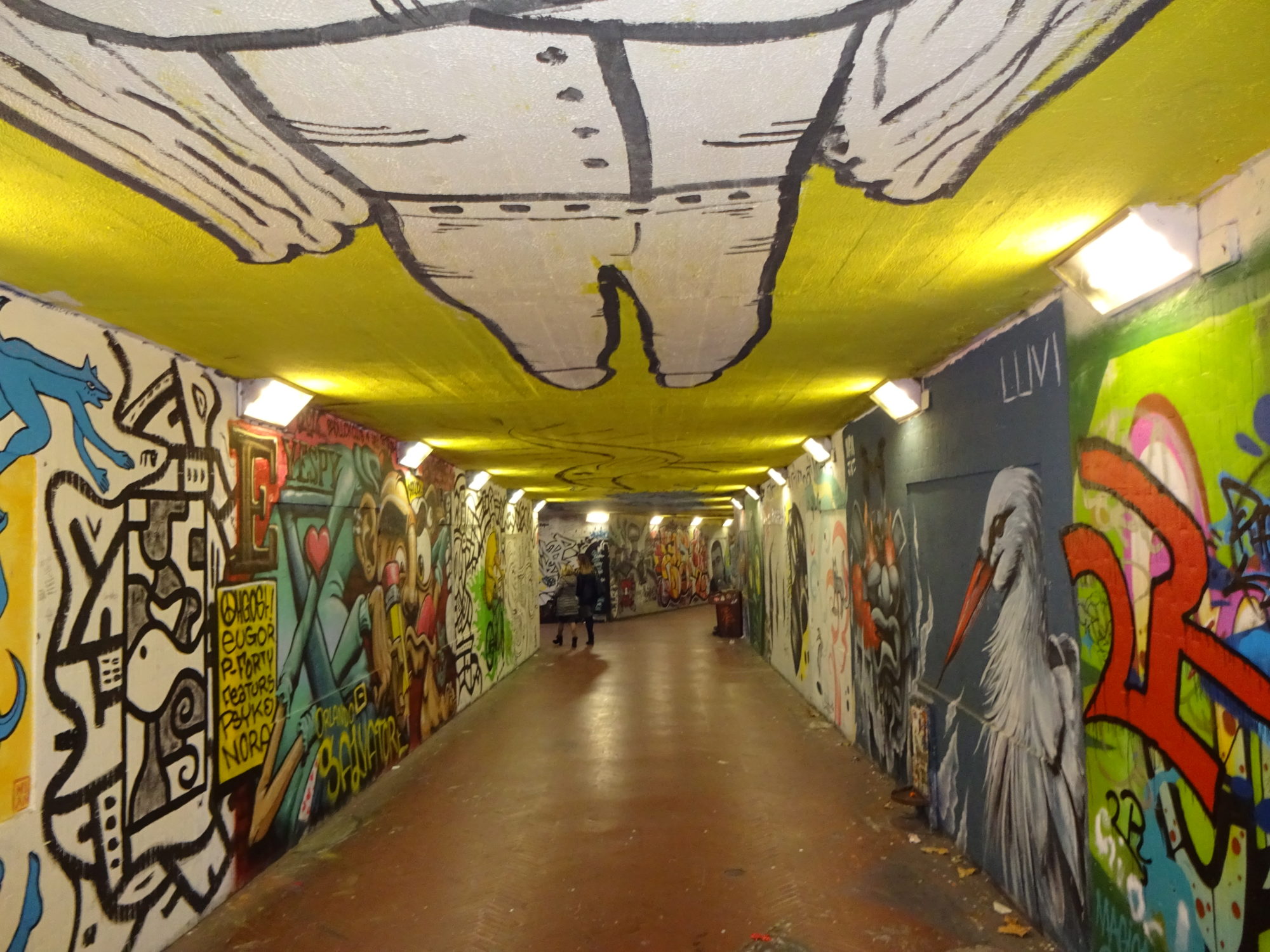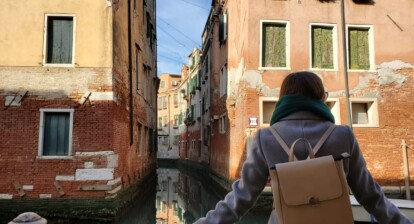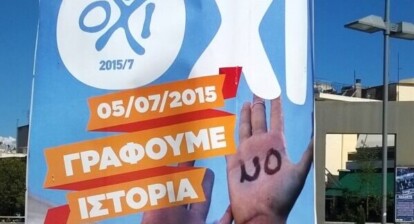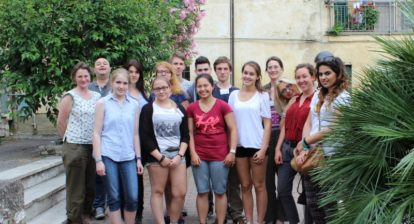The EU Commission is planning to treat young Europeans to free Interrail tickets to promote first-hand experiences of different countries in Europe. Gregor, a student of political science and history from Germany, did not wait for this new programme to start. He just returned from a six-month study trip in Florence and reflects on some of his experiences with Italian habits, cultures, cuisines and specific perceptions of the world. #livingEurope! #livingFlorence!
„… vi ho portato qualche dolce tedesco per salutarvi. Ancora una volta: Grazie mille per un tempo indimenticabile con voi!” – With these words I finished my short, improvised speech to my fellows of Florence University Choir. While giving out some of the sweets I brought from Germany, exchanging last contact information and ensuring each other to meet soon in Italy or Germany, I have been surrounded by almost 50 of the people I had spent a lot of time with in my six months as one of 330 000 people using Erasmus every year.
Especially in the first days I felt some kind of “Erasmus-bubble”: Arriving in Florence, I hoped to have experiences like that with my choir, but I didn’t expect it anymore after my first days. Besides searching for a flat in my new hometown for six months, I tried to get to know the place and some new people to spend the upcoming time with. The first and obvious possible group consisted of the always present Erasmus associations. In this way I spent my first week almost entirely with non-Italians. Talking English and German instead of Italian. I met very nice people – but I haven’t been able to free myself from the bubble.
A Flood of Voice Recorders and Other Encounters
All my courses were in Italian, since the only one in English I had chosen was already full. Having attended the first class, I realised that at least one third of my fellow students left a voice recorder on the professor’s desk. Did I have to record as well? I decided not to.
Sitting in that class, I did not search for the internationals, but I talked to Italians. At least a little. When seeing the same people twice or thrice a week, we came in closer contact, met for a coffee after lessons, went out for an apericena in the evenings or did a day-trip in the weekends.
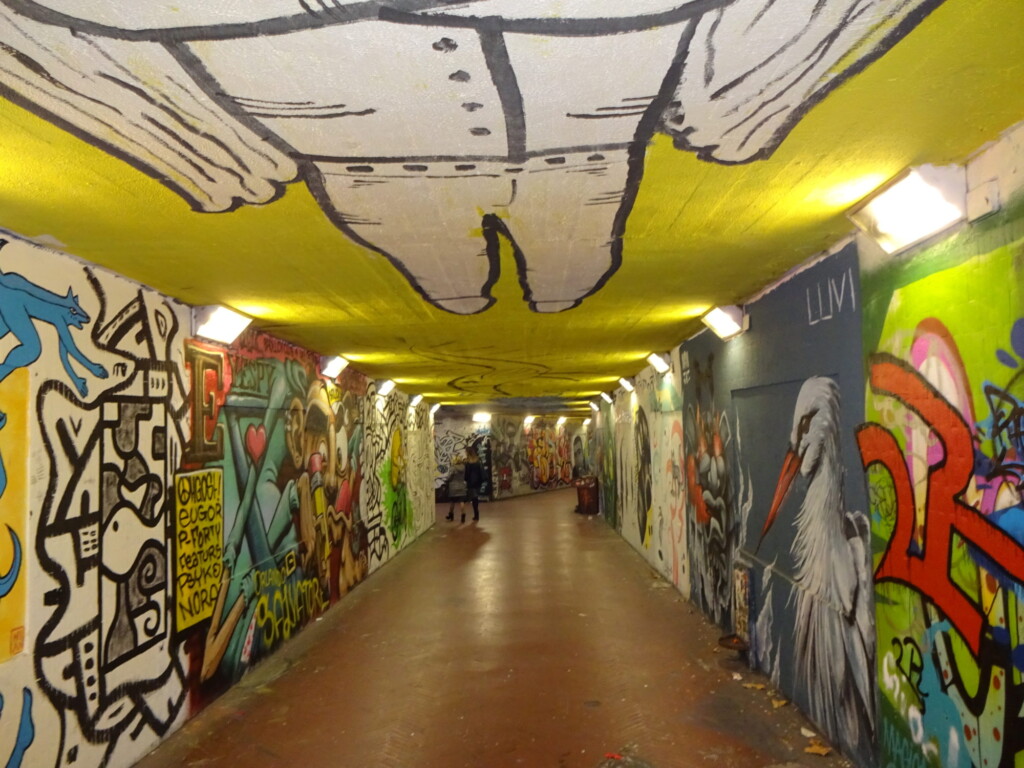
Weekly changing graffiti in an ‘open air art gallery’ close to my flat. (Photo: Gregor Christiansmeyer)
Besides these I familiarised myself with the ‘Italian way of life’ by joining the above-mentioned Florence University Choir, sharing a flat with two Italians and learning once or twice a week in a language tandem with an Italian PhD-student. In the beginning I was not able to get how Italians can eat a meal with up to seven courses. But smaller portions and the experience of slower, more talkative dinners taught me a different way of eating.
Dreaming in Italian
Another issue concerns the gesturing: Until today both my body and my face start moving when I switch to Italian – even if I do it in a different manner than ‘real’ Italians. And while first being worried about my first visit to an Italian hairdresser (“Will I be able to describe what I want? Will my incapability lead to a hair-desaster?’) and discovering a wonderful city with traffic sign-art and amazing graffiti, I more and more got the Florence-spirit.
These developments culminated in two experiences: After a couple of months I started to speak Italian instead of German in some of my dreams and I – accidentally – addressed one of the guys I knew from my Erasmus-association activities for almost two minutes in Italian, even though he did not understand it.
Living in the Campaign
Besides personal encounters and getting into a more Italian way of life, my semester in Florence also meant doing an Erasmus in the middle of an electoral campaign. No votes for a parliamentary or presidential election were casted, but a large-scale constitutional reform for the country of the Dolce Vita had been discussed.
I arrived believing that the government of the Partito Democratico of Matteo Renzi between the right-wing politicians of the Lega, Berlusconi and Beppe Grillo’s Movimento could be the only sensible and pro-European. Later I realised this perspective is quite a German one. Knowing the rusty, overstretched political system of my host country for a semester, it quickly became clear: even if the reform proposal has its faults, didn’t it still mean a clear improvement of the situation? I discussed with Italian classmates, attended information and election campaigns, followed the relevant election programs.
Extending my German Perspective
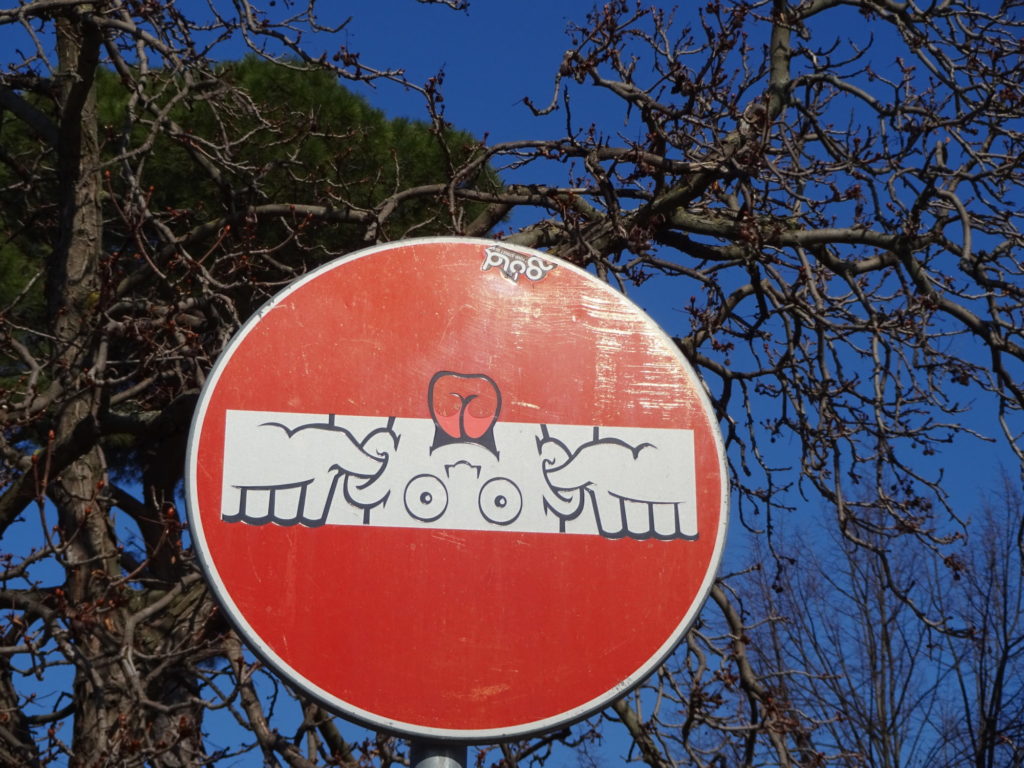
Don’t enter: The Florence-monster is waiting for you! (Photo: Gregor Christiansmeyer)
But I just got it when, finally, a good Italian friend told me: “In Germany this might work, but here …”. I was able to familiarise myself deeply with the technical details of the reform proposal or to approve of it for political reasons. But I had not yet been with the Italians, with their concerns, which were not always rational, but based on years of experience and disappointment with their political system:
Whilst some of my Italian fellows connected the immunity of parliamentarians to problems with fights on nepotism and corruption, I still saw (and see) it primarily as protection for the political actions of the members of parliament. Taking into consideration this and other examples we argued on, I really had to change my point of view, considering not just other arguments – but other thinking patterns.
Even though, if Italians asked me as a student of political science how to vote, one thing was clear to me in the end: as a German, I would have voted “Yes” in any case, but maybe as an Italian – following the majority – with “No”. I hope that I can preserve this thinking beyond the concrete question. This would not only support me in feeling more European – but as well to act and argue more European.
After saying “Goodbye Florence”, it is now time to say “Goodbye Rome” after having had the chance to do an internship in the capital. But the story of Gregor and Italy isn’t over yet. Neither is it the story of Gregor and Erasmus+: An internship in Brussel is already scheduled…
#LivingFlorence
- Where to go as foreigner to meet real Fiorentini?
NOT to the city centre. I’d recommend the Parco Pettini Burese, a small, public park in the quarter of ‘Alle Cure’. Under the olive trees you’ll find the perfect place for a picnic – far away from tourist routes.
- What surprised you the most?
The city centre. In my first days searching for a flat and discovering Florence I’ve been shocked to hear more German than Italian over there.
- What annoyed you the most? How would you suggest another foreigner to behave, in order to avoid the same difficulties?
The bicycle lanes. As a student from Münster, Germany’s bicycle capital, I hoped to ride one as well in Florence. Having found a flat, buying a bicycle and a lock have been my first investments of the Erasmus semester. After some shocking nearly incidents and bicycle lanes ending in the middle of the street, I stopped it. I’d just suggest to go on foot – Florence is not that big – or to move to a quarter with better lanes …

